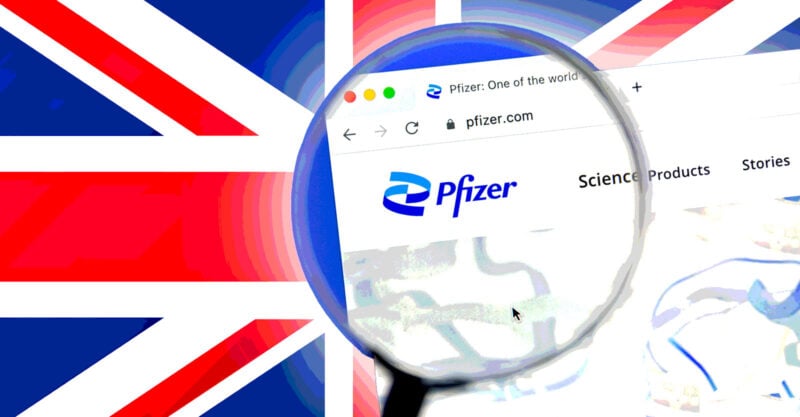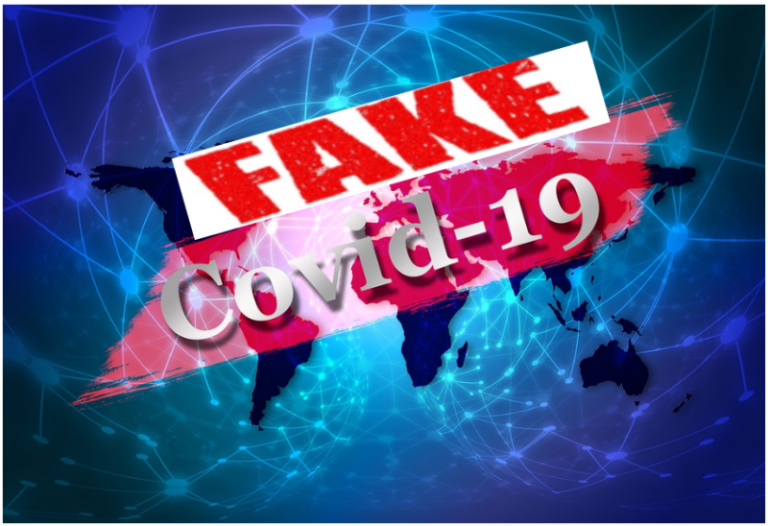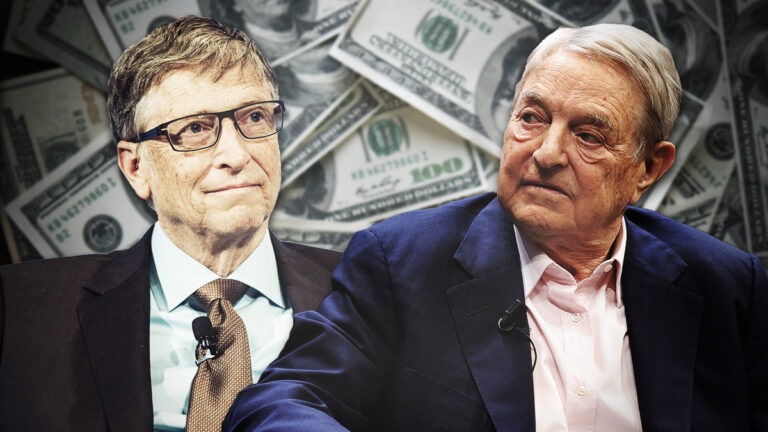Pfizer’s Misleading COVID Vaccine Claims ‘Brought Discredit’ on Big Pharma, UK Regulator Finds
The Prescription Medicines Code of Practice Authority, an independent, self-regulatory body established by the Association of the British Pharmaceutical Industry, ruled that the company breached five rules in its Code of Practice for advertising.
A U.K. regulatory agency found that top Pfizer employees “brought discredit” on the pharmaceutical industry when they made misleading claims promoting an “unlicensed medicine” in tweets about the COVID-19 vaccine, The Telegraph reported Sunday.
The Prescription Medicines Code of Practice Authority (PMCPA), an independent, self-regulatory body established by the Association of the British Pharmaceutical Industry, ruled that the company breached five rules in its Code of Practice for advertising.
U.K. pharmaceutical industry watchdog UsForThem filed the complaint with the PMCPA in February 2023. The complaint pertained to 2020 tweets by top Pfizer executives, including U.K. Medical Director Berkeley Phillips. The tweets were still visible on social media when the complaint was filed.
The organization alleged that Pfizer “misleadingly and illegally promoted its COVID-19 vaccine” by reporting very high relative efficacy rates without providing information about absolute efficacy rates or required information about safety.
UsForThem said it was important to file this complaint two years later because “such misbehavior was even more widespread” than they had previously thought, extending “right to the top” of Pfizer’s U.K. operation and “was apparently continuing to this very day.”
Commenting on the significance of the findings, Daniel O’Conner of Trial Site News, which also covered the story, told The Defender, “Pfizer’s behavior throughout the pandemic has been truly outrageous. And of course the aim — big money.”
O’Connor said Pfizer’s “corporate behavior during the pandemic,” as revealed by this and other PMCPA rulings, is “just as insidious” as the problems with the regulatory pathways for the drugs and major flaws in the clinical trials themselves that Trial Site News has been tracking.
Pfizer has a clear track record of acting as an “unacceptable profiteering enterprise during the worst pandemic in a century,” he added. “The question we have is who empowered them in government.”
Serious censure for bringing ‘discredit upon’ Big Pharma
The complaint focused on a tweet Pfizer’s Phillips shared on Twitter, now X, originally made by a U.S.-based Pfizer employee. The tweet stated:
“Our vaccine candidate is 95% effective in preventing COVID-19, and 94% effective in people over 65 years old. We will file all of our data with health authorities within days. Thank you to every volunteer in our trial, and to all who are tirelessly fighting this pandemic.”
The PMCPA investigatory panel found that four Pfizer U.K. employees had re-tweeted the post and others had “liked” it. They said it was likely that members of the public and health professionals would have seen the tweet.
The panel agreed with the UsForThem’s allegations that the message had limited efficacy information and no safety information, in violation of rules about misleading the public and providing accurate safety data.
The panel also pointed out that the existing codes of conduct prohibit the promotion of medicines before their market authorization. Yet, in direct violation of the codes, Pfizer employees’ tweets resulted in “an unlicensed medicine being proactively disseminated on Twitter to health professionals and members of the public in the UK,” the panel found.
The tweets also violated Pfizer’s own policy that prohibits Pfizer employees from interacting with social media related to the company’s medicines and vaccines.
The PMCPA panel concluded that “Pfizer brought discredit upon and reduced confidence in the pharmaceutical industry,” which it noted is a serious censure that it reserves for serious violations such as this one where a company promoted a drug before it had even been authorized.
Cases found to have brought discredit on the industry are advertised in the medical, pharmaceutical and nursing press.
A Pfizer U.K. spokesman said that the company “fully recognises and accepts the issues highlighted by this PMCPA ruling,” and that it is “deeply sorry,” according to The Telegraph.
Pfizer also said it would review its employees’ use of social media to ensure they comply with current codes and to prevent such problems in the future.
The paper also reported that Phillips, whose re-tweet was primarily at issue, said the post was “accidental and unintentional.” He added, “That said, we immediately accepted the case ruling and do everything we can to ensure that our employees adhere to our strict social media policy and the industry Code of Practice when using their personal social media.”
Five other reprimands related to COVID vaccine promotion
Pfizer was reprimanded by the regulator over its unethical promotion of the COVID-19 vaccine six times.
On March 4, a few days after PMCPA announced its ruling on the 2020 tweets promoting the vaccine, the agency also announced a second ruling, finding Pfizer breached another clause in the code of conduct in a 2022 tweet by Pfizer UK that “failed to maintain professional standards.”
That ruling, also issued in response to a complaint filed by UsForThem, pertained to a series of three tweets posted on Pfizer UK’s Twitter feed that included a link to a Pulse Today article.
That tweet said:
“As the UK enters its first ‘unlocked winter’ since 2019, our [named senior Pfizer medical employee] explains the devastating impact that respiratory diseases can have during the colder months. Read more @PulseToday 👇 #WinterPressures.”
The tweet linked to a promotional article — reposted here — commissioned by Pfizer on a website for healthcare professionals, but wasn’t clearly marked as promotional content paid for by Pfizer.
The PMCPA in this case said it was concerned that the tweets were available to the general public when the material in the PulseToday article was intended for healthcare professionals. This violated the high standards created by the codes of conduct, regulators said.
In February 2023, the agency found that Pfizer CEO Albert Bourla, Ph.D., made “misleading” and “unqualified” comments promoting the use of COVID-19 mRNA vaccines for young children during an interview on the BBC.
In that case, UsForThem accused the BBC’s medical editor, Fergus Walsh, of conducting the interview “as a friendly fireside chat,” giving Bourla “a free pass promotional opportunity that money cannot buy” by allowing him to promote vaccine uptake, particularly among young children for whom the vaccine had not even been authorized.
At the time, no COVID-19 vaccines had been approved by the U.K.’s Medicines and Healthcare products Regulatory Agency for children under 12, so the panel found Bourla’s comments breached the code.
Two of the other PMCPA rulings on Pfizer related to LinkedIn posts and one was about claims made in a press release.
The penalty for the series of breaches, The Telegraph reported, is a fine of 34,800 pounds.
Ben Kingsley, the head of legal affairs at UsForThem, told The Telegraph, “It’s astonishing how many times Pfizer’s senior executives have been found guilty of serious regulatory offences — in this case including the most serious offence of all under the UK Code of Practice.”
“Yet the consequences for Pfizer and the individuals concerned continue to be derisory. This hopeless system of regulation for a multi-billion dollar life and death industry has become a sham, in dire need of reform,” Kingsley said.
“Sweeping overhaul of the regulatory and legal framework under which this broken and corrupt industry is allowed to operate is desperately required,” UsForThem tweeted.
Critics in the U.S. called for national regulators to hold Pfizer accountable here. In a tweet, Stanford’s Jay Bhattacharya, M.D., Ph.D., called on the U.S. Food and Drug Administration to do so.
James Lyons-Weiler, Ph.D., wrote that the Federal Trade Commission and the Security and Exchange Commission take similar action.
Suggest a correction







